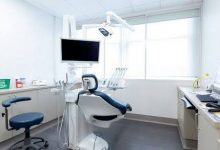How Can Premedical Students Get Strong Clinical Experience?

Index Of The Blog

Gaining clinical experience is one of the most important parts of medical school application that can maximize your chances of gaining admission to a top medical school. Gaining some clinical experience makes you a strong medical school applicant, prepares you for your clinical rotations, and gives you a clear idea of performing in a clinical setting.
Pursuing a worthwhile clinical experience shows the admissions committees that you clearly understand what it means to be a physician and have all the attributes required to become a competent doctor. It gives you an idea of the day-to-day demands of a medical career deal and how to deal with the challenges of the healthcare industry.
As a medical student, you have the ability to balance the challenging academic schedule, along with lab work, extracurricular activities, assignments, and personal responsibilities. Therefore, finding some healthcare opportunities that strengthen your clinical experience is a worthwhile idea.
If you are planning to apply to a medical school and want to be a competitive applicant, gain some clinical experience to increase your chances of acceptance. Here are some easy ways to get strong clinical experience.
1. Explore Primary Care Opportunities
Finding some opportunities in the field of primary care is a sensible idea to broaden your clinical experience. Family medicine, emergency medicine, and internal medicine are a few famous primary care specialties that provide you with a detailed knowledge of different types of medical problems. Gaining some experience in the field of primary care will provide you with great career opportunities in the future.
Medical schools prefer to hire those candidates who have prior experience in primary care. Premedical students are strongly advised to find internship positions or shadowing opportunities in the primary care field. It will definitely maximize your chances of gaining a spot in the best Caribbean medical university.
2. Work in Different Clinical Settings
Becoming a physician needs in-depth medical knowledge and strong clinical (inpatient and outpatient) experience. The type of patients you observe in a myriad of clinical settings is different. When you work in different healthcare settings, such as inwards and outpatients, you will learn that patient care in each environment is different. If you want to become a competent physician, you should know how to work in various healthcare environments. Mentioning it in your medical school application will demonstrate to the admissions committees that you know how to work in numerous healthcare environments.
3. Volunteer Work
Medical school admissions committees prefer to hire candidates actively involved in volunteer work and have some experience working with underserved communities. By exploring these opportunities, premedical students will find the opportunity to prepare themselves for patients’ unique challenges in underprivileged areas. It will give you a clear understanding of how economic and social factors can affect health outcomes of these patients. Gaining this experience will play a key role in making you a compassionate physician.
4. Find Physician Shadowing Opportunities
Finding a physician shadowing opportunity can give you a clear understanding of the medical field. When you spend time with physicians, you will know how physicians communicate with patients, perform a physical examination, diagnose the medical problem, order diagnostic tests, display empathy, and create a treatment plan.
Believe it or not, a physician shadowing opportunity can help you understand the rigors of the medical field and prepare you for a rewarding medical career. Additionally, if you establish a good rapport with a physician, you can ask for a letter of recommendation that is one of the most important medical school admission requirements.
5. Consider Becoming a Medical Scribe
Prospective medical students are advised to learn how doctors communicate with patients, build trust and provide patient care. Explore the part-time opportunity of becoming a medical scribe that will give you a better understanding of how physicians work under stressful conditions. Medical school admissions committees assess your ability to handle the stressful situations that physicians undergo. Remember, admissions officers are interested in those candidates who want to become an empathetic physician.
Becoming a medical scribe will not help you gain valuable clinical experience, but it will help you develop all the essential qualities that will make you a successful medical student and a kind physician. Furthermore, you will also learn medical terminologies that you will use after you enter medical school.
Conclusion
The ultimate goal of gaining clinical experience is to not only improve your medical knowledge but it will also hone your clinical skills, boost confidence, and the ability to communicate with patients and earn their trust. You will also learn how to provide excellent patient care, perform a physical examination and treat patients with care. For many medical school admission officers, having a variety of patient care experience matters most, so try to seek opportunities to gain some clinical and patient care experiences to become a competitive applicant for medical school.













